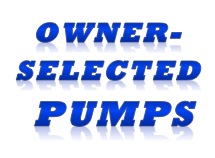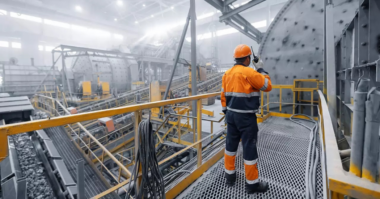There are two ways pumps can be selected for a municipal project. The most common way is for the pumps to be included as part of a larger project. In that case a General Contractor selects the pumps and includes them in their bid. The Owner then awards a contract to the General Contractor who in turn procures and supplies the pumps.
A less common method for pump selection is for the pumps to bid separately from any other portion of the project, and for the Owner to select the most advantageous bid from those received.
One reason why the Owner-selection process is not more common is that it creates additional work. A municipal bid is complex and labor-intensive. Bidding the pumps separately will cost the Owner time and effort. In addition, municipalities tend to require very specific and stringent commercial terms and conditions. General Contractors are accustomed to dealing with these requirements, but manufacturers are not. A direct bid from a pump manufacturer will typically contain numerous exceptions to the municipality’s terms and conditions necessitating negotiation and compromise by both parties.
In some cases the additional work created by this procurement method is warranted. Some of the primary benefits of this procurement method include the following:
Benefit No. 1: Weigh pump proposals based on multiple factors.
With Contractor-selected equipment the lowest price nearly always wins. However, in some cases the Owner may consider a short lead time, better performance, or some other criteria to be more important than price. In those cases the Owner can create a matrix which assigns weights to various factors such as price, lead time, performance criteria, and manufacturer experience. The Owner will then select the proposal with the highest overall score.
Benefit No. 2: Prevent the selection of unacceptable products and manufacturers.
Many municipal bids include “or equal” terminology allowing non-listed equipment manufacturers to propose their products. In such cases General Contractors will often select non-listed equipment if it appears to be specification-compliant and is offered at a better price than the listed manufacturers. In many cases this is acceptable. However, at times the Owner may wish to be highly selective in allowing non-listed manufacturers and products. This procurement method enables that selectivity.
Benefit No. 3: Ensure appropriate commercial terms are set in place.
In the case of Contractor-selected equipment the terms between the Contractor and Pump Manufacturer are often quite different from those included in the Owner’s contract. If the equipment value is a negligible part of the project this is not a major concern. However, when the equipment value is a very significant part of the project, the Owner can use this procurement method to ensure the Pump Manufacturer is held to the same high standards as would apply to a General Contractor.
In conclusion, using an Owner-selected procurement process takes more time and effort than employing the Contractor-selected process. However, when the equipment is critical the Owner can employ this method to make sure the right equipment is selected, and that appropriate commercial protections are in place.
There are also good reasons to allow the Contractor to select and supply pumps in municipal projects. My next article will explore some of those reasons.




